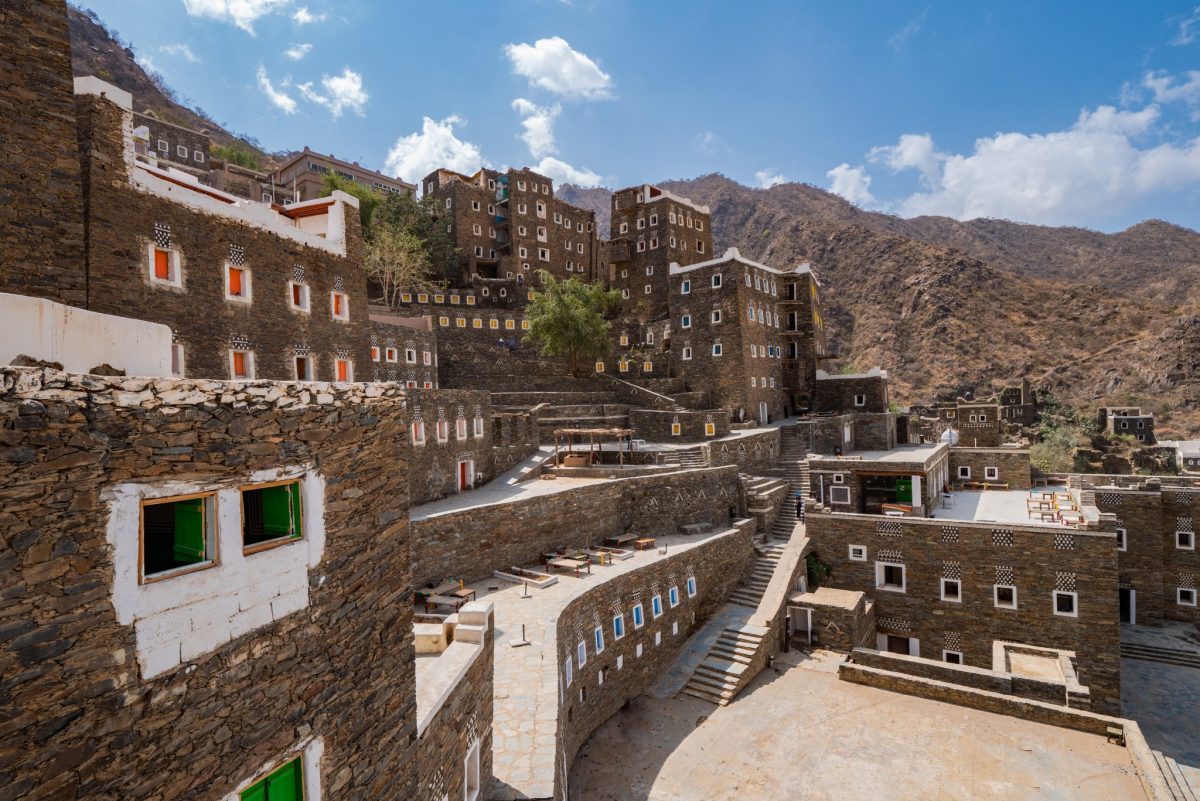Saudi Arabia Opens Up to Airbnb-Like Rentals

Skift Take
Citizens of Saudi Arabia will now be able to rent out their homes to tourists, according to a bylaw approved by the tourism ministry.
The country that is witnessing a renaissance in tourism, targets to attract over 100 million tourists annually by 2030.
The new rule is being seen as an effort to keep pace with this development by making the destination more accessible to international visitors.
“There is a progression towards the modern world and that will only benefit tourism and hospitality,” said Vinayak Mahtani, co-founder and CEO of bnbme, a vacation rental company in the United Arab Emirates.
As the country has increased its tourism promotional activities and budget by almost twelve-fold, this has also pushed demand to new heights. Saudi Arabia plans to invest $1 trillion in the tourism sector over the next 10 years.
As a result, the country has more hotel rooms in the pipeline than United Arab Emirates. There are 40,742 hotel rooms under construction in Saudi Arabia as of December 2022, compared to 27,456 rooms in UAE, according to hospitality data firm STR.
Support Growing Demand
Saudi Arabia also registered the maximum number of international arrivals in the region during the first nine months of 2022, according to the United Nations World Tourism Organization.
The country attracted more than 18 million visitors in the first three quarters of 2022, followed by United Arab Emirates with 14.8 million tourists.
Building parallel hotel facilities at a rate quick enough to accommodate the growing number of tourists may not be easy, therefore allowing Airbnb-like accommodations can help, said Turab Saleem, partner — head of hospitality, tourism and leisure advisory services, Middle East and North Africa for real estate consultant Knight Frank.
“During peak season, the typical hotel accommodations are not enough to cope with the growing demand therefore such facilities can play their role to bridge the gap,” he said.
This would also help businesses like restaurants, cafes, local transport and souvenir shops to grow and flourish around these accommodations, Saleem said.
However, hospitality expert and founder of My Humble House, Rocco Bova, said it may be a bit rushed, “I am not sure how many people will actually open their doors to foreigners.”
And that too for a country that started issuing tourist visas as early as 2019.
Bova said this could be a great option for second or third home owners, where one's privacy and customs would not be invaded.
What’s Driving Demand?
As tourism in the country evolves from its traditionally-operated models of religious, domestic and corporate, bnbme's Mahtani said the accommodation market is also expected to grow.
In January, Saudi hosted two Italian football teams — Inter Milan and AC Milan — in Riyadh, while Portuguese soccer star Cristiano Ronaldo’s new Saudi team, Al Nassr, played Argentinian soccer star Lionel Messi’s Paris Saint-Germain.
Saudi is also hosting heavyweight boxing title matches and has also confirmed that it will be hosting football’s 2027 Asian Cup. And then Saudi is also mulling a joint World Cup bid for 2030, along with Egypt and Greece.
Away from the sporting events, there is also the annual Riyadh Spring Festival that begins in March.
These events are creating a buzz and allowing short-term rentals demonstrate how previously closed mindsets are now opening up, said Mahtani, adding, "It’s going to be a very interesting market in the next few years."
Sensing the demand for alternative accommodations in Saudi Arabia, bnbme, has been looking at the market for the past six months, Mahtani said, adding, “We are already in talks with several developers.”
Away from Cookie-Cutter Hotels
In tune with the tourism ministry’s efforts to develop tourism across the country, such accommodations should be allowed to flourish across the kingdom, according to Knight Frank’s Saleem.
“Airbnb will sooner or later be a strong part of the Saudi hospitality and tourism eco system,” he said, adding that Airbnb-like accommodations not only allow travelers an experience away from cookie-cutter hotels, but would also attract tourists with different budgets.
Bova is also glad to see the country diversifying market segments and not just concentrating on the ultra-luxury ones.
Though sceptical, Bova is not surprised that Saudi is relaxing “old rules” to open up to the world. Calling Saudi Arabia, “United Arab Emirates in steroids,” he said such steps are essential for the kingdom's Vision 2030 goals.
“I witnessed the beginnings of Dubai some 20 years ago when I was working at the Jumeirah Beach Hotel and I can see this one coming bigger, with the knowhow of years of what worked and what didn’t, plus today's technology and resources which were not available back then,” Bova said.
Setting up Basic Minimum Standards
But for a country that is new to the alternative accommodation market, Saleem said it is important to control and manage the quality of these accommodation facilities.
Saudi tourism authorities have set up minimum standards to ensure travelers are provided with certain quality and standards which are cost effective and manageable by small individual businesses, according to Saleem.
Saleem also said that when international operators like Airbnb and HomeAway enter the market they would set up minimum standards which would define their brand as well as educate and train facility owners.
“The Saudi population in general is very hospitable therefore for them to take care of their guests is not only a business where they earn from but it is part of their culture,” Saleem said.
Mahtani echoed Saleem’s thoughts as he noted that while training would be required for hosts, it would not be different from what they do in any other country.
“Saudis are hospitable people. The country has some of the finest hotels and Saudi nationals also own stakes in several traditional hospitality chains,” Mahtani said.
Last year, Saudi had announced that it had allocated $100 million to provide training for 100,000 people to work in the tourism and sustainability sector.
"According to the rules laid down by the government it should be well regulated and controlled. This will make things safer for those who rent their premises to foreigners," Bova said.





